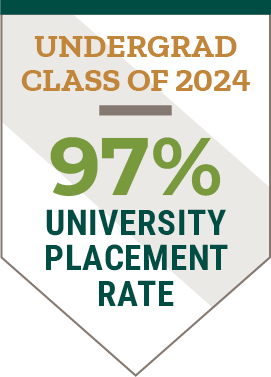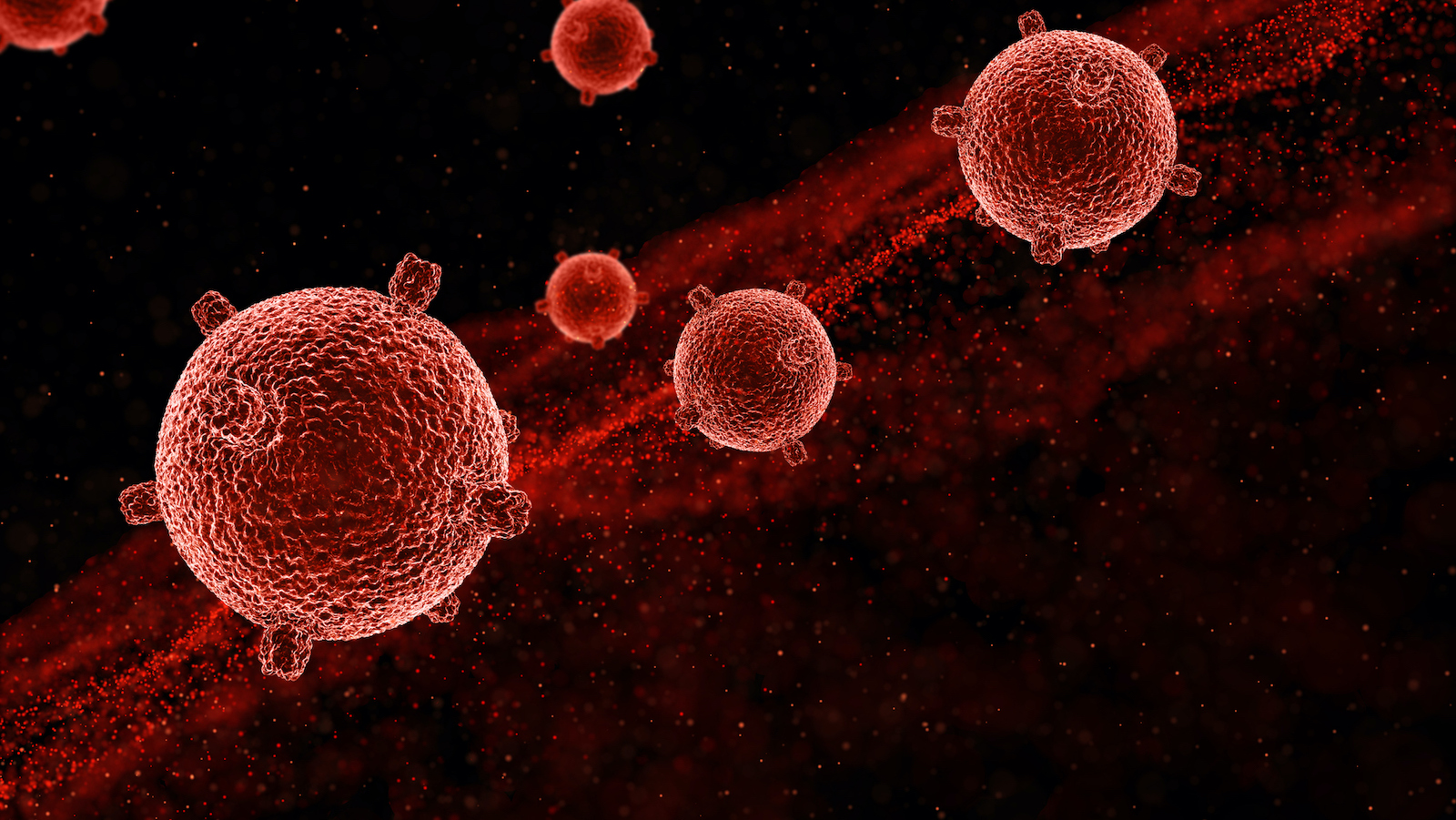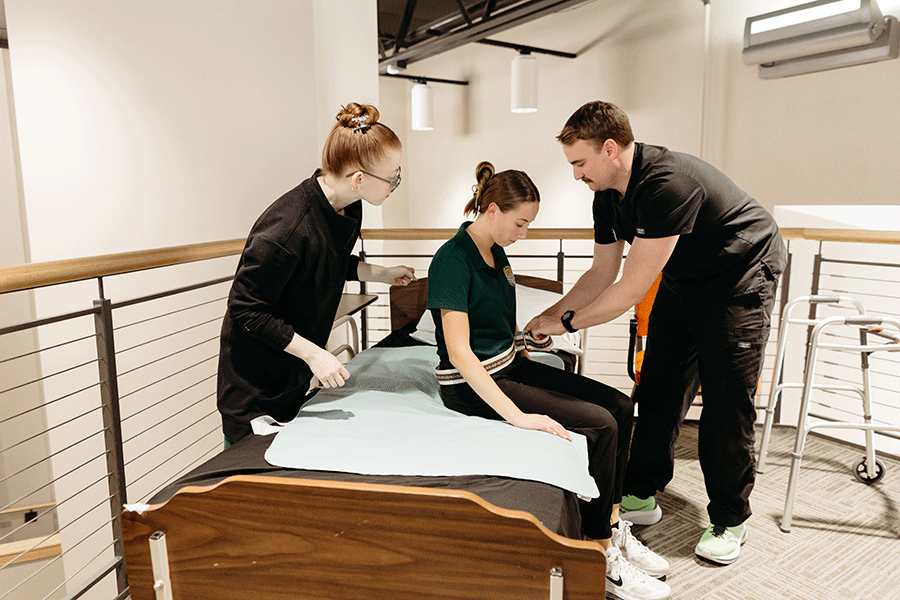Bioscience (15 credits)
Biology II - Cellular and Molecular Biology (3 credits)
Biology II Laboratory (2 credits)
Genetics (3 credits, STS)
Cell Biology (3 credits)
Biology Seminar (1 credit)
Microbiology or Medical Microbiology (3 credits)
Biotechnology Science (15 credits)
Introduction to Biotechnology & Applications (3 credits)
Business of Biotech Cohort Development (1 credit)
Bioinformatics (4 credits)
Molecular Biotechnology (3 credits)
Molecular Biology Laboratory (4 credits)
Professional Experience Course: Internship in Bioscience (0 credits), Professional Experience in Bioscience (0 credits) or Research in Bioscience (variable credit)
Biotechnology Ethics, Law, Regulations (6-9 credits)
Biotechnology Product Development and Regulatory Affairs (3 credits)
Law & Society I (3 credits)
Strongly recommended: One professional ethics course, e.g. Bioethics Across the Healthcare Industry, Medical Ethics, Business Ethics, The Law and Bioethics or other professional ethics course
Chemistry (11 credits)
General Chemistry (4 credits)
General Chemistry II (4 credits)
Biochemistry for Health Sciences (3 credits)
Mathematics (8-11 credits)
Intro to College Mathematics AND Basic Calculus (7 credits) OR Calculus (4 credits)
Biostatistics or Statistics (4 credits)
Business Core (27 credits)
Introduction to Financial and Managerial Accounting (3 credits)
Microeconomics (3 credits) + Macroeconomics (3 credits) OR Engineering Economics + Designing and Leading Innovative Ventures
Introduction to Business Intelligence and Data Analytics (3 credits)
Principles of Marketing (3 credits)
Financial Management (3 credits)
Operations and supply chain management (3 credits)
Management of Technology (3 credits)
Organizational Behavior I (3 credits)
Organizational Policy & Strategy (3 credits)
Business tracks (9 credits)
Project Management
Project Management (3 credits)
Quality Mgmt. & Lean Enterprise (3 credits)
Strategic Human Resource Management (3 credits) or Negotiations and Relationship Management (3 credits)
Supply Chain Management
Supply Chain Design and Management (3 credits)
Logistics Management (3 credits)
Strategic Sourcing (3 credits)
Data Analytics
Applied Data Analytics (3 credits)
Database Design & Management (3 credits)
Introduction to Econometrics (3 credits) or Design of Experiments & Analysis of Data (3 credits)
Marketing & Product Development
Consumer Behavior (3 credits)
Marketing Research (3 credits)
Creativity, Innovation, New Product Development (3 credits)
Generalist
Any three courses from the advising business tracks, or an alternative business course upon approval of the degree program director.
Strongly recommended: Professional Communication (3 credits)
Intro to Public Speaking (3 credits), Professional Communication (3 credits) or another COMM designated course
General Clarkson University undergraduate degree requirements: Clarkson University requires that students complete 120 credit hours of coursework with a 2.0 GPA.
All students must complete The Clarkson Seminar (UNIV 190), or equivalent. Students entering Clarkson as First Year students must also complete The First Year Seminar (FY 100). Students must select coursework and possibly extra-curricular activities that carry a total of at least six communications points. Students are also required to take at least five courses that have Knowledge Area designators, and the five courses must cover at least four of the six Knowledge Areas. Additionally, at least one of these five courses must be a University Course that has two Knowledge Area designators. Students must take at least one laboratory course, two science courses, two math courses and coursework in statistics, and be introduced to professional ethics in their field. Students must take one course with a technology designation, and complete a professional experience.
Professional Experience (0-3 credits): A BB student must have a professional experience of at least 120 hours of activity in an area related to the business of biotechnology. This includes a co-op, internship or job at a biotechnology or biomedical business, research involving biotechnology, or working as a teaching assistant in a course with business or biotechnology content. The professional experience can be completed as a co-op during an academic year semester or during the summer of any academic year. As a product, the student will write a paper explaining what they did and reflecting on what they learned from the experience, and have a memo submitted by their supervisor affirming that the student had adequately completed their professional experience. To transcript this, students will enroll in either Internship in Bioscience (0 credits), Professional Experience in Bioscience (0 credits), or Research in Bioscience (variable credit). Students will sign up for the section number of the BB Program Director (i.e. Langen, section 42), who will approve and verify that the activity meets the requirements of the professional experience. Note that this is not qualitatively different than the professional experience requirement for the Biology-BS degree.





